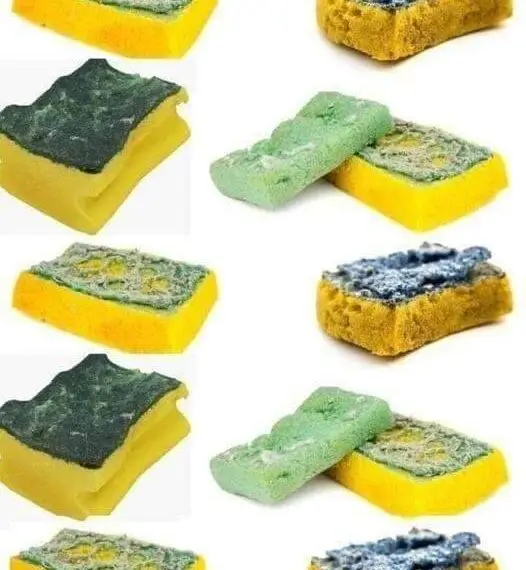When it’s time to replace your kitchen sponge, your first instinct might be to toss it in the trash. But did you know that old sponges can be incredibly useful in your garden? Instead of discarding them, you can give these humble household items a new purpose, reducing waste and enhancing your gardening efforts. Here’s how old sponges can benefit your plants and garden.
1. Retain Moisture in Soil
Old sponges are excellent at absorbing and retaining water, making them perfect for keeping your soil moist. Place a few clean, used sponges at the bottom of your potted plants before adding soil. They will:
- Absorb excess water, preventing overwatering.
- Slowly release moisture back into the soil, keeping your plants hydrated for longer.
This technique is especially useful for plants that need consistent moisture, such as herbs and ferns.
2. Improve Drainage
Sponges can also enhance drainage in pots and planters. By lining the bottom of the container with sponges, you:
- Allow excess water to drain away, preventing root rot.
- Maintain a lightweight pot, unlike heavy gravel or stones.
This method is particularly beneficial for hanging baskets or large planters.
3. Seed Starting Made Easy
Old sponges make fantastic seed starters. Here’s how to use them:
- Clean and sanitize the sponges thoroughly.
- Cut them into smaller pieces if needed.
- Moisten the sponge and place seeds in the pores.
Keep the sponge in a warm, sunny spot and water it regularly. The seeds will germinate quickly, and you can transplant them to soil once they’ve sprouted.
4. Create DIY Plant Labels
If you’re growing multiple plants, it can be challenging to keep track of what’s what. Old sponges can be cut into strips and used as plant markers. Simply:
- Cut the sponge into pieces and write the plant names on them with a waterproof marker.
- Insert the labels into the soil near each plant.
They’re durable, water-resistant, and eco-friendly.
5. Prevent Weeds
Old sponges can act as a weed barrier in your garden beds. Lay them flat under a layer of mulch or soil. They will:
- Block sunlight, preventing weed growth.
- Decompose over time, enriching the soil with organic material.
6. Protect Delicate Plants
Use old sponges as cushions for delicate plants or stems. Wrap them around fragile plant stems or place them between stakes and plants to prevent damage from rubbing or wind.
7. Attract Beneficial Insects
Place pieces of old sponges in areas where beneficial insects, like ladybugs, might congregate. These sponges can provide shelter and help maintain a healthy garden ecosystem.
Tips for Reusing Old Sponges
- Sanitize first: Before using sponges in your garden, sanitize them by boiling them in water or soaking them in a vinegar solution. This will eliminate any harmful bacteria or chemicals.
- Avoid synthetic sponges: Opt for natural sponges, as synthetic ones may contain chemicals or microplastics that can harm the environment.
Environmental Benefits
By reusing sponges in your garden, you:
- Reduce waste and minimize your environmental footprint.
- Repurpose an everyday item that would otherwise end up in a landfill.
Conclusion
Old sponges are more than just kitchen tools—they’re versatile and eco-friendly assets for your garden. Whether it’s improving soil moisture, starting seeds, or preventing weeds, these simple hacks can transform your gardening routine. The next time you’re about to throw away a used sponge, think twice—you might just be discarding your garden’s next secret weapon!
